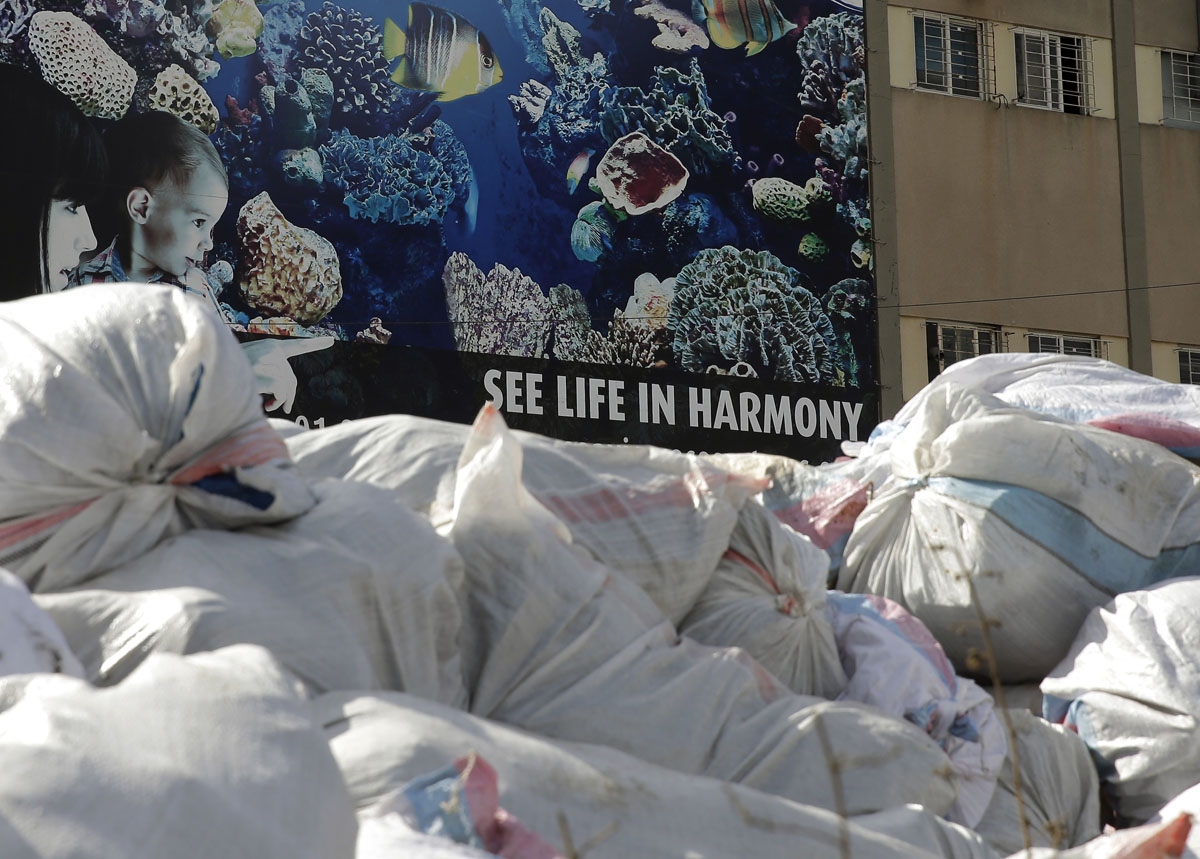
By
Beirut — “Good morning!
I’m an AFP photographer. Would it be alright to use your roof to take
pictures of the garbage mountain in front of your building?”
“Welcome, welcome my dear, come in. Would
you like some coffee? I can give you a full interview if you want. Will
your pictures show how bad the smell is?”
Since Lebanon’s trash crisis began last
July, I have asked this question dozens — perhaps hundreds — of times.
I am greeted with the same enthusiasm each time, with residents eagerly
ushering me onto their rooftops or near their windows to snap pictures
of the piles of rubbish lining Lebanon’s roads.
After several rounds of government deals
on the issue, we thought the waste crisis had been brought under
control. But over the past month, piles of garbage have once again
invaded our streets and neighbourhoods, from Lebanon’s rocky mountains
to the capital’s busy streets.
My 40 kilometre commute to work takes me
from the beautiful coastal town of Byblos along the seaside highway to
Beirut. Day by day, as I drive this route, I notice garbage accumulate
along both sides of the highway, near exit roads that lead into
residential neighbourhoods, and under huge concrete bridges.
While driving to Beirut one morning, I noticed a giant cloud of smoke
several kilometres away. I veered off the road to track down where it
was coming from. It was a massive construction pit filled to the brim
with flaming rubbish. I immediately began snapping photos, as two
firefighters emerged from the smoke, calling for backup as they had run
out of water to extinguish the fire.
It looked like a disaster movie — except
that joggers and people walking their pets just strolled by, completely
unfazed by the gruesome scene unfolding before them. It seemed surreal
— are they drugged? I thought. More likely, the situation has become so
commonplace that they’ve become numb to the heaps of trash around them.
The following day, I saw a river of
garbage — bags piled up on a bridge that serves as one of the main
thoroughfares into Beirut. The only way to capture a telling picture
would be from an elevated position, so I began making the rounds in
nearby buildings to find a suitable lookout point.
The smell was overwhelming — I couldn’t
imagine how anyone was living this close to such a putrid monument. A
concierge spotted me looking around and knew exactly what I needed. “Do
you want to get a postcard of this new tourist site? Come with me and
I’ll show you!” he shouted.
He led me up 14 storeys to the rooftop.
What a view. I could see Beirut’s perennially-bustling port, the old and
new buildings of the city, and, of course, the smoke rising from
burning garbage piles across the capital. I could also spot the new
garbage dump in Karantina, a mountain in a forest of buildings.
Then, I saw it: Lebanon’s new ski slope. But instead of freshly fallen
snow, the white hill was made of garbage bags, extending for several
hundred meters along the Jdeideh bridge, which links the Metn area to
Beirut. Once again, commuters were zipping past without a second glance.
I took the pictures I needed and thanked the concierge for his help. As I
showed him the photographs, he smiled and complimented the “beauty of
my frames,” as if he was looking at a picture of a beautiful woman or a
postcard from the Caribbean islands.
t’s shameful. The blatant lethargy of the
Lebanese has stunned me. They are absolutely convinced that nothing can
be done — that their fate has been sealed by the governing political
elite. They are angry and upset, but they suffer silently, without hope
of a real solution.
Along to the warm welcomes that
I’ve received from residents whose rooftops I used as vantage points, I
also repeatedly heard the following phrases:
“Please make sure to show the world what they are doing to us.”
“We are dying of cancer.”
“We are overwhelmed by viruses, infections, and bacteria.”
“A country the size of a small town in the
west is unable elect a president, all its public institutions are
dysfunctional, its services and infrastructure are rotten… Why would
anyone want to live in such a failed state?”
Everyone I’ve spoken to in my work as an
AFP photographer and in my daily life as a Lebanese citizen has given
up. They have surrendered entirely to the idea that the ongoing garbage
crisis exemplifies what is wrong with Lebanon: A political class that
has no interest in serving the public. This political class, Lebanese
people say, has intentionally manufactured or at least prolonged a
crisis because it has not yet been able to agree on how to “divide up
the cake.”
Because Lebanon’s leaders cannot agree,
some have resorted to sectarian discourse as a tool to deflect public
scrutiny and camouflage their own culpability. Others have irresponsibly
suggested that municipalities, which have been handcuffed by the same
elite for years, take on the responsibility of processing waste in light
of the fact that the elite have failed to do so. Still others have
called on citizens to find a solution to the garbage crisis, a move
which only highlights the bankruptcy of the politicians.
But until a lasting solution is found, I will keep climbing up buildings to capture Beirut’s increasingly-littered horizon.



